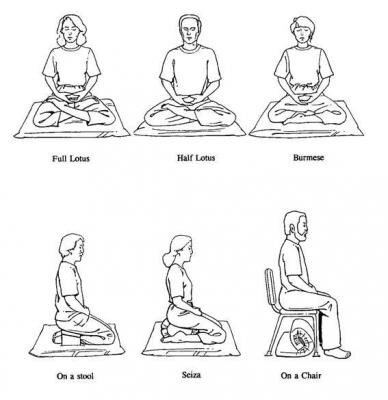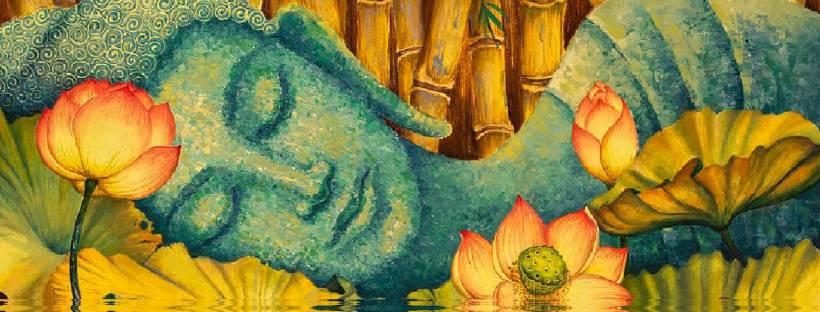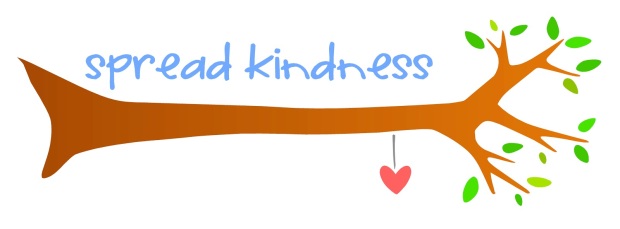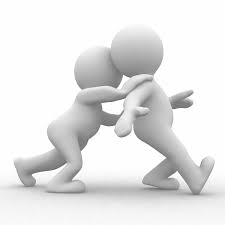
As the submission date for my thesis approaches, I decided to take up a new hobby that would keep me grounded and focused, MEDITATION. I searched the internet for the most appropriate and inexpensive course I could find and came across a ‘Mindfulness and Loving-Kindness Meditation’ five week course every Wednesday morning from 10:30-12:45 at the Dublin Buddhist Centre. For under 25’s the course costs just €55. BARGAIN! and for everyone else see the price list below:
€170 for waged
€135 low-waged
€95 for unwaged, students or OAPs.
Who better teach me how to meditate than the Buddhist Community! The early mornings suited me because I do a lot of night duty so it meant I could just go straight from work.
Week 1:
- Introduction to meditationPosture workshop
Mindfulness and the Mindfulness of Breathing meditation practice
Week 2:
- Exploring aspects of mindfulness
- The four foundations of mindfulness
Week 3:
- Exploring friendliness
- The Metta Bhavana meditation practice
Week 4:
- Working with the mind: distraction and absorption
Week 5:
- Taking meditation into the world
- Keeping your practice going after the course
I’m going to write about what each week entailed and give a little personal reflection on how I found the class and how I got on with the homework on and off ‘the pillow’.
Week 1:
This week introduced us to meditation, its origins and what meditation is not. I have just written down the notes they gave us on these topics below to give you an understanding on what we learned.
What is Meditation?
Meditation is a means of transforming and changing our minds for the better. It helps us change the way we relate to ourselves and the world around us. If we experience difficulties, meditation can help us to work creatively with those difficulties. If life is already good for us, meditation can deepen our enjoyment and appreciation of life.
Buddhist meditation techniques offer a way of encouraging and developing positive states of mind. We can use it to cultivate calmness, clarity and awareness, and also can help us to develop emotional positivity. It can help us let go of ways of being that limit us, and allow us to go beyond a limited sense of ourselves. It can even help us to see more deeply the true nature of things.
The main thing we learn when we meditate is that we have a choice about what we think and feel. We tend to think of our personality as being fixed. We tend to think that the thoughts and emotions we have are somehow inevitable, and outside of our control. But actually our emotions and thoughts are much more fluid and ever- changing than this. And even though much is beyond our control in life, we can always take responsibility for our own states of mind and choose to change them for the better. Meditation empowers us to make this choice.
Buddhist Meditation
Over thousands of years Buddhist meditation techniques have developed to help people work with their minds. The foundation of all these techniques is the cultivation of a calm and positive state of mind.
The meditation practices we teach cultivate this calm and positive state of mind. They consist of two simple but effective practices drawn from the Buddhist tradition, originally taught by the Buddha himself over 2,500 years ago. The pair complement each other and can be learned by anyone.
The first practice is the Mindfulness of Breathing, which cultivates clarity, awareness and calmness. The second practice is the Metta Bhavana, or Development of Loving Kindness practice, where we develop friendliness and loving-kindness for ourselves and others. (We also do sessions of body awareness, which we call the Body Scan.)
Both practices are Buddhist in origin, but one does not have to be a Buddhist to benefit from them. After all, you don’t have to be German to drive a BMW! That said, if you’re interested in Buddhism, learning these two meditation practices is a great starting point.
Through learning these meditations, we may not find the meaning of life, but we can certainly find ways of living a life with more meaning. They are called foundation practices, but you can go a long way with them! They can profoundly transform your life for the better.
What meditation is not
It is worth saying what meditation is not. It isn’t escapism: if you want to escape try watching lots of reality TV, getting drunk, doing drugs etc. They are more effective ways to escape your experience! When you sit down to meditate what you get is your experience, sometimes uncomfortable, sometimes not, but always very ‘real’.
Neither is meditation about controlling your experience; it is about becoming aware of your experience and encouraging it in positive directions. In any case, you can’t control your experience; you can only choose how you respond to it.
Finally it isn’t about your mind going blank, or going into some trance! When you sit down to meditate, you get yourself, just as you are.
Meditation posture
It also showed us the best postures to hold whilst we meditate. I chose the seiza position which entailed sitting on the floor with a mediation pillow and two blocks under my ‘sit bones’ (basically take your two hands and move the two sides of your bum cheeks to either side) and wrapped myself in a blanket where I could rest my hands. For those who find this one uncomfortable the chair was recommended. The lotus position is my goal. Very majestic 😂
Why is the position in which we meditate important?
The position in which we meditate is very important to keep the spin in alignment with the pelvis. Usually when we are in a seated position of any kind our pelvis and spine are curved which eventually leads to slumping and becoming uncomfortable. In order to remain comfy and cause no strain or discomfort to our backs during meditation, our spine needs to remain straight. When our pelvis is in a straight position, the spine follows it. The pelvis is considered the anchor of the spine. When we move the flesh to either side of our ‘sit bones’, we allow the pelvis to become aligned with the spine creating an upright comfortable posture. You literally just take your two hands and pull each bum cheek to the side and sit. This means that the top rim of the pelvis is neither rocked backward nor forward.
In order to enjoy meditation and sit satisfactorily in chairs, we must also pay attention to the position of the thighs. One of the problems with most chairs is that they force us to sit with our thighs in a horizontal position, or worse yet, with our knees higher than our hip sockets. As soon as we raise the knees to the same level or higher than the hip sockets, the pelvis tilts backward, and the lower back rounds. This position causes strain on the muscles and discs in the back causing pain. It was recommended that you place a block or two under your sit bones and sit on the edge of the blocks to help direct your thighs downwards allowing them to be placed below your hips. As you become a regular meditator this position will become easier and the muscles will begin to stretch leading to your knees automatically falling below your hips. This can take a long time so don’t beat yourself up for needing like three blocks and a blanket. Everyone has to start somewhere. There are loads of hip opening exercises you can do to help you with this position. We do a lot in yoga class but I won’t get into details on this post. The position of your ankles and feet whilst in a cross legged position is also important. I always thought you literally sat on your ankles and feet when crossing your legs but I was informed this would just cause pain and discomfort. Which it did. Again the correct position for sitting cross legged takes time.

Your head is obviously attached to your spine and therefore it’s position is essential. Position the head so that you are looking straight ahead, then slightly drop the skull so that the eyes fall about three feet in front of you on the floor. Some meditation systems teach you to keep your eyes open, others keep the eyes closed. Whichever you choose, this position of the head will be comfortable. We were taught to close our eyes and imagine a hook is pulling our head towards the ceiling. I had just finished night duty this day so I was advised to slightly open my eyes and stare at the ground if I felt I was falling asleep. It is not ideal to fall asleep during meditation as your brain and concentration becomes lazy and impacts on the benefits and purpose of the practice.
The position of the arms and hands are another one. Tie a blanket around your hips and place your hands inside the front and there will be less weight pulling through the arms and straining the shoulders and neck. You can also place your hands on your knees or thighs with the palms facing up or place your hands in a mudra position.

The first half then finished with a body scan which they encouraged us to do before beginning of every meditation as it helps us to become aware of our inner and outer worlds.
Reflection
It was difficult to get comfortable at first and my feet are pretty stiff so I moved around a lot trying to find the best position. There was complete silence which was I have always liked a guided body scan as it keeps me focused and engaged as I find it hard to concentrate and stay focused during without Guidance. We reflected together as a group and then had some tea and chats at the break. Our teacher encouraged me to try and figure out why I find it harder to sit with myself without guidance. Something I will figure out as the course goes on I thought?

In the second half of the class we were taught about mindfulness and were introduced to a simple ‘mindfulness of breathing’ meditation. We practiced this for 20 minutes and again reflected on our experience as a group.
Mindfulness
Central to meditation is the practice of mindfulness. When we are mindful, we are aware; we notice what is going on around us and inside us.
Mindfulness is something we can practice when we’re on the bus, when we’re waiting in the queue at the shop, while we’re eating. It’s not abstract or esoteric – it’s simply about paying attention to what’s there with an attitude of interest and exploration.
Through being mindful, we learn that small things can have a big effect. Becoming aware of our bodies, our emotional life, our communication with others, helps us to live a life that flows into a rich tapestry of awareness, imbued with beauty and appreciation.
From a Buddhist perspective, mindfulness even includes an awareness of ‘how things really are’ – an awareness of the true nature of things. By being mindful, the Buddha says, we become more wise and more free. It’s because of this that he said that ‘mindfulness is the direct path to freedom’.
The Mindfulness of Breathing Meditation Practice
In this meditation practice, we are, quite simply, mindful of the breath, aware of the breath. We bring more and
more of our energies to bear on our experience of sitting here breathing.
Why meditate on the breath?
• It’s always with us, it’s free, and it’s beautifully simple.
• It’s internal, so we’re less and less dependent on external stimulation.
• The breath offers way into our state of mind. Awareness of it takes us deeper into ourselves and how we
are feeling.
• The breath can be a refined, pleasurable experience, which can be very enjoyable.
• The breath offers a meditation on life. It has a poetic quality: to be alive is to breathe.
We breathe from our birth continuously until our death, when we ‘draw our last breath’. By focusing on the breath, we become aware of the mind’s tendency to jump from one thing to another. The simple discipline of concentration brings us back to the present moment and all the richness of experience that it contains.
But also, by being aware of the breath, our energies will gather around the breath and our deeper energies will unlock and integrate, rather than remain scattered. By practicing the Mindfulness of Breathing regularly, we can experience ourselves becoming more free, at deeper and deeper levels of ourselves.
How do we practice?
We do this practice by being aware of the body breathing, being aware of the breath in the body. In other words, we bring this quality of mindfulness to our breathing.
We’re not thinking about breathing, but rather feeling it. We’re exploring the breath, being curious about the breath, being interested in the breath. It’s not an idea about the breath, but an experience of the breath itself.
The breath is an organic process, so we don’t force it or try to control it. Instead we simply be aware of it, and let it happen in its own way, without trying to change it.
Stages of the practice
To help us be aware of the breath, and to encourage a deepening and refinement of our awareness of the breath, the practice is in stages.
Stage 1
Mindful of the breath, with a subtle count after the out-going breath
Stage 2
Mindful of the breath, with a subtle count before the in-coming breath
Stage 3
Mindful of the breath
Stage 4
As you breathe in and out, mindful of the sensations at the point where you first feel the breath enter the body
The count in the first two stages is a gentle guide to help you stay with the breath – the practice is not mindfulness of counting! In each of these two stages, we count the breaths, up to ten, and then start the count again at one. This also helps us to notice if our minds wander off.
If the mind does wander off, don’t worry. This is quite normal! Given our busy lives, it’s not surprising that this happens. The main thing here is not to give yourself a hard time, and instead respond with kindness. Accept with kindness that you have wandered off, and then simply return to the breath in the body and resume the practice again. In a way, you should really celebrate when you notice you’ve wandered off, as you’ve just moved from unawareness to awareness!
Reflection
I found this much more difficult as it was not guided and my mind wandered a lot more than in the first one. I did notice I was a lot more comfortable in my posture though as I realized having my feet slightly hanging off the pillow I was knelt on was much nicer. If you’re doing this meditation at home and find your feet are a bit ‘stiff’ you can easily fold up socks and slip them just under your feet near your toes or even a small blanket? Same applies if you have trouble with your knees. When I’m at home I use a giant cushion from my couch to kneel on so my feet can hang off the back. I sit on two blocks and one pillow and use my dressing gown to keep me warm whilst placing my hands in the pockets to keep my posture intact. My mind usually wanders off so I started to label them as they come about. I imagined a conveyor belt with my thoughts going by on it ‘WORK’, ‘HOLIDAYS’, ‘PHONE BILL’. Others like visualizing their mind as a sky with their thoughts as the clouds constantly changing and moving through your mind. Whichever works for you!
HOMEWORK
Homework for week 1 was to practice the body scan and mindfulness of breathing meditation every day. I managed to do it for 4 days. I didn’t set a time for it and always felt I was ‘too busy’ to fit it in. I found it hard to concentrate on my own and not with a group. The support from meditating in a group is amazing. You’re not afraid of someone in your house walking in on you sitting on a pillow meditating thinking you’ve lost your mind. Although, people in my house wouldn’t even bat an eyelid because they’re used to me doing random ‘hippy’ things as they would call it. So big things this week were definitely not giving myself the time and space and not setting a time for it every day. Some days I forgot to meditate and felt guilty then going to bed without doing it. You shouldn’t ever feel bad for not meditating because that is just counterproductive! I was also working nights for half the week then off work for the remaining half. I always find when I have no routine I am extremely under productive so that would explain the lack of consistency and laziness towards the end of the week. Leaving my ‘meditation station’ set up was a big help. I didn’t have to put in any effort to prepare the area, I just sat straight down. I found meditating before sitting down to do my assignment extremely beneficial. I felt I had more energy and did not get all ‘FML this thesis will be the death of me’, I remained calm and focused. That’s like the main aim of meditation, being calm and focused HURRAH!
J x
 What things do you avoid because you have become attached to a particular label or idea that you have about yourself?
What things do you avoid because you have become attached to a particular label or idea that you have about yourself? 































